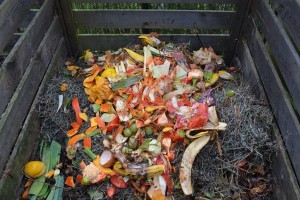In any home, there will always be some kind of food waste daily. While these food wastes may seem like something that are just thrown away, did you know that you can put these so-called waste into something useful? There’s this thing called composting where you can use these kitchen scraps for the benefit of something else. Plus, composting can be done at any point in the year. You can even do composting in winter even if the weather is really cold! Interested? Here are some steps on how to compost kitchen scraps the right way:
Understand what composting is
If composting is all new to you, let me define what composting is and what benefits you will be getting when doing it. In a nutshell, composting is the process of turning natural waste into a product that makes the quality of your soil improve. It is similar to a fertilizer minus the chemicals. This makes it better for our environment. Through composting, wastage will be reduced since household wastes are used for this process. Composting makes your soil more healthy which will result to better growth for your plants.
Coordinate with your municipal office regarding home waste management
There may be instances that your local community restricts the activities of food waste composting. Your local office believes that they are more confident in doing that type of work better. Therefore, there is a need to inquire with the respective department whether it is allowed or what the limitations are when it comes to composting.
Know what items are good as compost
In general, most food wastes can be used as compost. However, here are some of the most common food waste materials that can be subjected to composting:
• Vegetable or fruit wastes
• Old flour-based products such as bread or noodles
• Coffee filters and tea bags
• Grains or cereals
• The pulp after juicing vegetables or fruits
• Old herbs and spices
• Expired boxed goods
• Finely-crushed egg shells
• Chopped corn cobs
In terms of what not to compost, avoid meat, fish, dairy, and oils. These materials attract unwanted organisms such as rats and maggots. Also, these will make your compost bin smell really, really bad!
Have a separate trash bin for the storage of your compost materials
Once good-as-compost materials are mixed with waste which can’t be used for composting, it will be hard to separate it. This will result to an increase in waste materials brought to the landfills which can cause harm to our environment. With that, you should have a separate container for your compost materials. These can range to a small bucket or a large trash bin depending on the amount of your waste. However, make sure that these are sealed properly in order to prevent flies from coming. One tip is to have your bin lined with newspaper before covering with the lid.
Add a layer of non-food compost materials to your trash bin
This will prevent problems from occurring such as the attraction of flies and rats or the stench of bad odor. Another benefit of this is that it makes your kitchen waste turn into compost faster. Some examples of these non-food compost materials are soil (of good health), leaves, or lawn clippings.
Keep your compost moist and mix it every two weeks or so
Keeping your compost moist makes nutrients circulate keeping the quality of your compost. However, do not make your compost really wet. Just add water to your compost only when it looks dry. Also, make sure to turn or mix your compost every two weeks or so. This makes air (oxygen) circulate which is necessary to create good compost.
Additional Tip:
If you’d like to compost during the cold winter months, what you can do is add more of the non-food compost materials mentioned earlier than food waste materials. You can also use tarps instead of newspapers to cover your bin. Doing this makes your compost warm making the process of composting still work.
So there you have it. What we have provided are some tips on how to reduce food waste by turning these into compost. Through these, we will minimize the amount of waste being brought to the landfills. Also, it is relatively cheaper than purchasing chemical fertilizers plus it does not harm our environment. We hope that you found the information helpful and encouraged you to turn waste into compost. Let us know your take on composting in the comments section below. If you have any other tips that you’d like to share, feel free to also leave a comment below.
